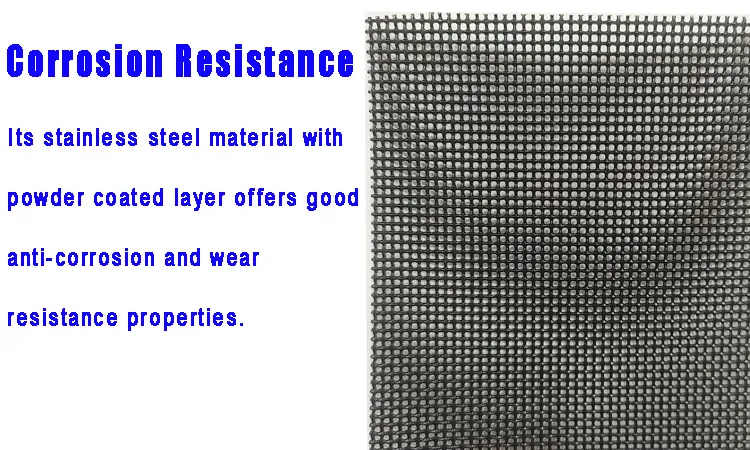-
+86 15030157877
-
sales@galvanizedmetalmesh.com
Hul . 31, 2024 20:51 Back to list
Leading Manufacturers of Wire Mesh Solutions for Durable Concrete Applications and Construction Needs
Wire Mesh for Concrete An Essential Component for Manufacturers
In the construction industry, ensuring the structural integrity and durability of concrete structures is paramount. One of the key components that aid in achieving this goal is wire mesh. Wire mesh for concrete, often referred to as reinforcing mesh or welded wire fabric, plays a crucial role in enhancing the strength and stability of concrete applications. This article explores the significance of wire mesh for concrete manufacturers, the different types available, and its benefits.
Understanding Wire Mesh for Concrete
Wire mesh for concrete is a grid of steel wires that are welded together at regular intervals to form a uniform structure. It is designed to be embedded within concrete to provide reinforcement, preventing cracking and potential structural failure. The use of wire mesh is especially prevalent in slabs, pavements, and precast concrete products, where stress and tension are prominent.
Types of Wire Mesh
Manufacturers can choose from several types of wire mesh, each tailored for specific applications
1. Welded Wire Mesh This is the most common type, consisting of longitudinal and transverse wires that are welded at the intersections. Its uniformity and high tensile strength make it ideal for concrete slabs and foundations.
2. Steel Woven Wire Mesh Unlike welded wire mesh, woven wire mesh is primarily used in less load-bearing applications. Its flexibility allows for better distribution of stress across large surfaces.
3. Galvanized Wire Mesh This type is coated with zinc to protect against corrosion, making it suitable for outdoor and high-moisture environments. It ensures longevity in applications like retaining walls and bridges.
4. Fiberglass Reinforcement Mesh As an alternative to traditional steel options, fiberglass mesh provides corrosion resistance and is often employed in applications where chemical exposure is a concern.
wire mesh for concrete manufacturers

Benefits of Using Wire Mesh in Concrete
Integrating wire mesh into concrete work offers several advantages
1. Enhanced Durability Wire mesh significantly improves the tensile strength of concrete, helping it withstand various loads and pressures without cracking.
2. Crack Prevention By redistributing stress throughout the concrete, wire mesh reduces the formation of cracks that can compromise a structure's integrity.
3. Flexibility Manufacturers can easily cut and shape wire mesh according to project specifications, making it versatile for various applications.
4. Cost-Effectiveness Using wire mesh can lead to cost savings in the long run due to reduced repair needs and increased lifespan of the concrete structures.
5. Improved Workability Wire mesh is easy to handle and can be quickly integrated into concrete mixes, enhancing the overall efficiency of construction projects.
Conclusion
For concrete manufacturers, the importance of using high-quality wire mesh cannot be overstated. The right type of wire mesh not only enhances the performance and durability of concrete structures but also contributes to the overall efficiency of construction processes. As the demand for sturdy and long-lasting concrete solutions continues to grow, so does the need for reliable wire mesh reinforcement. By understanding the different types of wire mesh and their benefits, manufacturers can make informed decisions that lead to better construction outcomes and satisfied clients. Emphasizing the integration of wire mesh in concrete manufacturing is not just a matter of choice but a necessity for ensuring safety, stability, and longevity in modern construction.
-
Welded Gabion Solutions: Durable & AI-Enhanced Designs
NewsAug.01,2025
-
Premium Welded Gabion Mesh | Robust & Eco-Friendly
NewsJul.31,2025
-
Premium Eco-Friendly Roof Tiles | Affordable & Durable
NewsJul.31,2025
-
Premium Roof Tiles for Durable & Stylish Roofing Solutions
NewsJul.30,2025
-
High-Quality Roof Tiles for Durable & Stylish Roofing Solutions
NewsJul.29,2025
-
High Quality Square Wire Mesh Manufacturer & Supplier for Wholesale
NewsJul.29,2025



